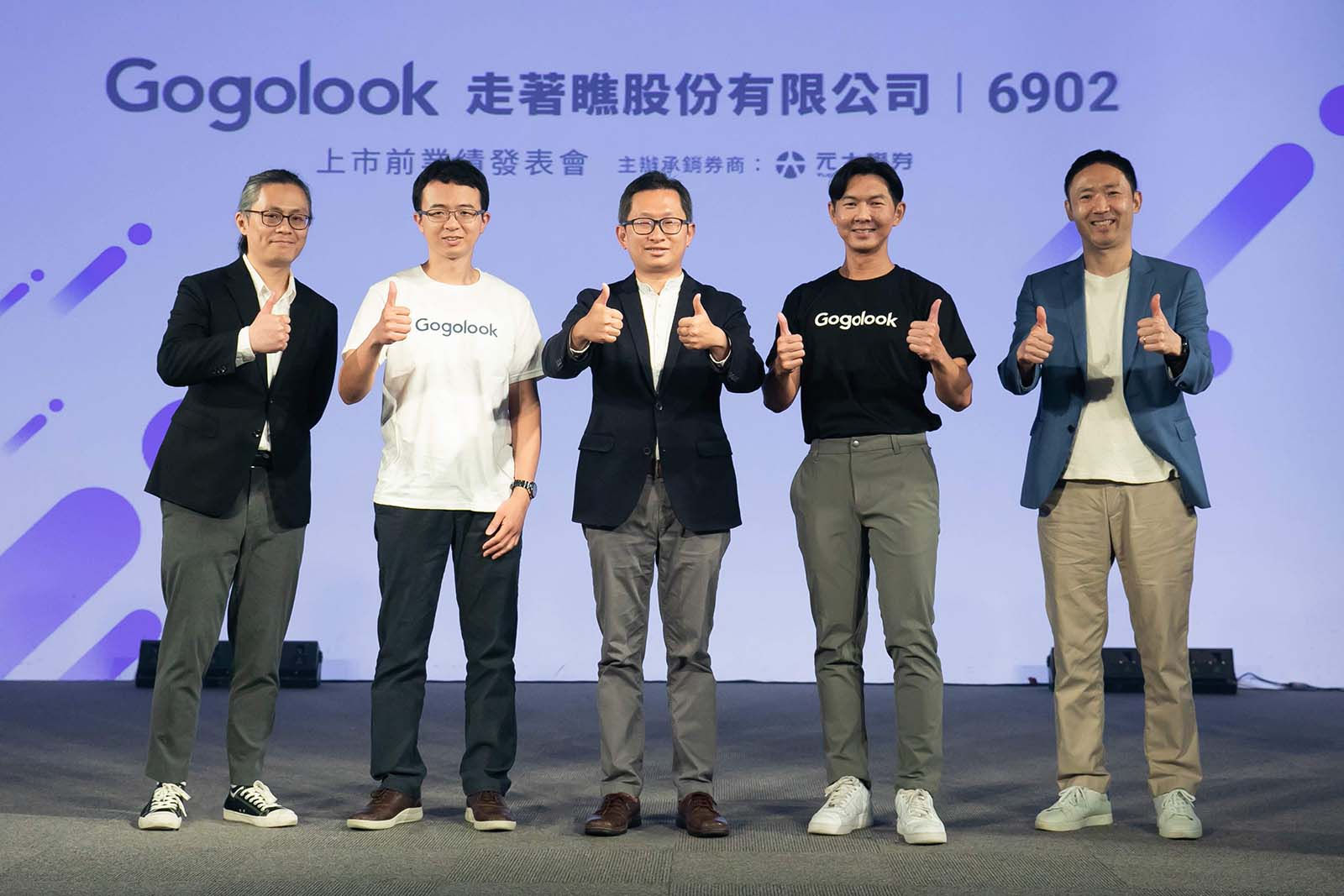How Taiwan’s Gogolook uses AI to build a TrustTech startup

Source:Chien-Ying Chiu
Gogolook, which started out with the caller ID app Whoscall, is the first software firm to list on the Taiwan Innovation Board (TIB) of the Taiwan Stock Exchange. Can the provider of fraud prevention services inspire other software startups in Taiwan?
Views
How Taiwan’s Gogolook uses AI to build a TrustTech startup
By Chan-Hua Yangweb only
Gogolook's completion of its initial public offering listing process on the Taiwan Innovation Board (TIB) on July 13 drew much attention since the TrustTech provider is the first genuine internet startup to list on the board since the Financial Supervisory Commission (FSC) and the Taiwan Stock Exchange launched the TIB two years ago for so-called "new economy stocks."
Previously, other Taiwanese stocks of the internet economy such as AI-enabled marketing provider Appier, beauty and fashion solution provider Perfect, and media platform The News Lens chose to list on stock exchanges in Japan or the United States. Gogolook, nonetheless, decided to go public in Taiwan.
Some 40 percent of Gogolook's revenue stems from overseas. The 11-year-old company counts among the handful of Taiwanese internet startups that have the ability to expand abroad and boast core competitive advantages.
Gogolook, whose main business is "TrustTech," owns a database with 2.6 billion telephone numbers, the largest in East Asia and Southeast Asia combined. Its app Whoscall, which identifies unknown callers and filters out spam, has been downloaded more than 100 million times globally. In recent years, the company has focused on digital fraud prevention while also branching out into fake news detection, digital identity services, and FinTech.
Gogolook is a so-called Software-as-a-Service (SaaS) company. It posted a profit for the first time in the first quarter this year.
JJ Fang, the founder and CEO of angel investor platform Angel to Venture Accelerator (AVA), has observed Taiwan's startup scene for a long time. Fang says Gogolook's growth and performance over the coming year will be closely watched in the capital markets.
Why list in Taiwan?
Gogolook Co-founder and Chairman Jackie Cheng (鄭勝丰) points out that 60 percent of the company's revenue and the core team are in Taiwan. Therefore, they agreed to go public at home when TWSE chairman and chief executive officer Sherman Lin came knocking on their door.
Gogolook's capital market advisor, Quantum International Corp. (QIC), points out that the widely held belief that Taiwanese investors are not willing to invest in the software industry and that its valuation is low is a myth.
QIC follows 170 startups worldwide very closely. The price-to-sales ratio of tech- or service-oriented new economy stocks stood at a median of 4.8 this year, whereas the price-to-sales ratio for Taiwanese enterprises was 5.4. This means that the valuation of Taiwanese companies in various capital markets is quite high.
Although the market value of omni-channel commerce solution provider 91App, which is traded on Taiwan's over-the-counter market, has slipped from more than NT$40 billion to NT$16 billion, its forward price-to-sales ratio still stands at 11. The price-to-sales ratio of Perfect Corp., which is listed in the United States, is 10.7. After its IPO, Gogolook's market value stood at around NT$6.9 billion. Assuming revenue will grow this year at the same rate as last year, the price-to-sales ratio would be 10.
"This is a valuation that only the most awesome SaaS company in the world could have," notes QIC founder Alex Lee. It is a very good valuation compared to the valuation of Taiwanese software companies in overseas markets or the valuations in the Taiwanese market. Given that Gogolook's gross margin stands at 85 percent, it deserves to be called "Taiwan's foremost SaaS," says Lee.
 Gogolook management team.(Source: Gogolook)
Gogolook management team.(Source: Gogolook)
Once acquired by Naver, Gogolook stays in Taiwan
The three Gogolook founders decided in 2008 to venture into software development just before the financial crisis hit. The team members who stuck with the company through the crisis also lived through further hard times during the following decade or so.
In 2013, Gogolook was acquired by South Korean internet giant Naver, but Cheng and his partners subsequently bought the shares back, taking advantage of the rules of the game in the international capital markets.
Cheng says he has met with more than 1,000 investors, but only a handful are able to understand the value of international software startups, let alone see their future or give suggestions.
He recalls how he once gave a report at an internal investment review meeting at a venture capital firm. The boss told the participants, "Raise your hand if you use Whoscall." Almost everyone raised their hands. But when the boss asked, "Who is paying (for the service)?" only a few hands stayed up. As a result, the boss decided against investing in Gogolook.
"This was a shame," says Cheng with concern. He believes that if Gogolook had gone public abroad, it would not be possible to educate investors in Taiwan and improve their understanding of internet startups. The valuation of Taiwanese internet shares would then not improve. "We hope to act as the bellwether," notes Cheng.
Cheng has made it his mission to bring about a cluster of Taiwanese new economy shares. He cites biotech stocks as an example. Over the past two decades, the market value of Taiwan's biotech industry steadily increased since a few companies educated investors about the potential of the biotech sector. Meanwhile, "even retail investors know what 'unblinding' means," says Cheng.
With its IPO, Gogolook raised only NT$200 million, which is not a lot. But Cheng thinks if there were 20 similar companies, they could raise NT$4 billion combined. This group of pioneering entrepreneurs, well-versed in the new economy, could then organize a B Round investment worth more than NT$1 billion. Taiwan, where accelerators are gaining a foothold and where an increasing number of investors participate in Angel rounds and A rounds, most lacks B Round investors.
"If startups have an opportunity to list in Taiwan, be it on the innovation board or the main board, there would be more capital available for all, and only then will it be possible to invest in even younger startups to create a virtuous circle," believes Cheng.
However, it remains to be seen whether startups listing on the TIB will be able to raise more funds.
An executive with a stock brokerage describes the dilemma as follows: "The number of qualified investors for the TIB has only just reached 200,000; liquidity is not good with few investors since they won't achieve a high price-to-earnings ratio. This will affect their willingness to invest, creating a vicious circle," explains Cheng.
Some also complain that the mix of companies listed on the TIB is too wild, including budget airlines, wind energy fims, and various companies that have nothing to do with the internet. "I don't mind if people open an account because they want to invest in wind energy and then happen to see us while looking around in the market; then what's wrong with that?" says Cheng.
Now that Gogolook has successfully listed and underwriters give it a good valuation, Cheng and his team are forced to continue to post good results.
"Where there is a need to match consumers with financial services, trust is a must," believes Cheng. Gogolook will relentlessly follow suit when fraudsters come up with new methods. Gogolook subsidiary Roo.Cash launched a generative AI Q&A service this year, which helps users understand financial products and prevent becoming a victim of fraud.
TrustTech is suitable for various activities, be it e-commerce, job hunting, or online dating. Since the commercial services sector accounts for less than 20 percent of revenue, Gogolook sees good potential there.
Towards the end of the interview, Cheng opens his Line app and shows the screen of his mobile phone to the reporter, saying, "These are all information fraud cases." The numerous chat rooms that he has marked with "xxx" are all phishing accounts. Cheng admits that his personal stress relief is chatting with fraudsters to find out whether there are any new scamming schemes.
Having fought against online fraud from day one of Gogolook, Cheng and his team harbor the ambition to not only stop fraud but also to make Taiwan's internet stocks shine with amazing performance in the future.
Have you read?
- What’s Taiwan's role in the chip war?
- Why is Taiwan unaffected by China's metal export restrictions?
- Meet MixerBox, ChatGPT's largest plugin developer
Translated by Susanne Ganz
Uploaded by Ian Huang






